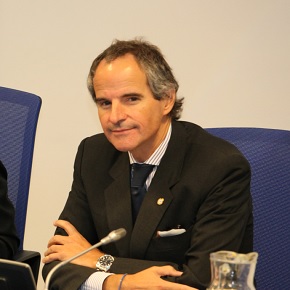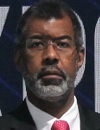 |
||
|
Rosatom and Orano subsidiaries sign contract to grow Russian capacities for depleted uranium reconversion TVEL, PUBLISHED 10.12.2019 Electrochemical Plant (ECP, an enterprise of TVEL Fuel Company of Rosatom in Zelenogorsk, Krasnoyarsk region, East Siberia) and Orano Projects have signed the contract for supply of equipment for construction of the second installation for de-fluorination of depleted uranium hexafluoride (DUHF) on the site of ECP. The document is signed by Sergey Filimonov, Director General at ECP, and Cedric Barba, Vice-President for Nuclear Fuel Cycle Front End Business Operations at Orano Projects. Following the logic of the first W-ECP installation (currently the only one in Russia), the new facility will be named W2-ECP. After its commissioning, the capacity of the DUHF processing plant with de-fluorination will increase twofold, from 10 thousand tons to 20 thousand tons per year. "Introduction of DUHF de-fluorination technologies is the key for solving environmental issues of nuclear fuel cycle, and also for production of fuel for fast neutron reactors. Construction of the second W-type installation in Russia fully complies with the industrial program of safe DUFU handling, TVEL environmental policy, Rosatom's strategy aimed at the dual-component nuclear power generation with closed nuclear fuel cycle, and the UN Sustainable Development Goal "Responsible Production and Consumption", commented Mikhail Zarubin, senior Senior Vice President for Production at TVEL JSC "The French technology of DUHF de-fluorination has proven its efficiency for the ten years of W-ECP operation at Electrochemical Plant, and prior to that - at the French facility in Pierrelatte. Solving the issues of DUHF utilization, including the tailings after the second iteration of uranium centrifuge enrichment, we prove our commitment to protect the environment," commented Sergey Filimonov, Director General at Electrochemical Plant. After de-fluorination, uranium hexafluoride is converted into a chemically safe state of depleted uranium oxide powder, which can be stored for a long time in open areas without environmental risks, safe for transportation and has a much lower level of radioactivity than natural uranium ore. Depleted uranium oxide is the material used for fabrication of mixed uranium-plutonium MOX fuel for the unique Russian BN-800 fast neutron reactor (its core is currently being gradually loaded by MOX fuel instead of the bundles with enriched uranium). Apart from nuclear fuel, depleted uranium, with its high density and refractoriness, can be applied in other industries. In particular, for production of medical equipment screens for x-ray and gamma radiation protection, casks for radioisotopes transportation, counterweights and gyroscopes in aircraft and shipbuilding, catalysts for certain chemical reactions, etc. Fluorine-containing products obtained by DUHF de-fluorination, such as hydrofluoric acid and anhydrous hydrogen fluoride, are later sold as commercial certified chemical products. Anhydrous hydrogen fluoride is also re-involved into the nuclear fuel cycle at the stage uranium conversion. Other news: The total contract value is 26.3 billion rubles. 449 nuclear units are operating in the world Another 53 units are under construction. Rafael Grossi elected as IAEA Director General He will replace late Yukiya Amano. Last news:
|
Hero of the day 
IAEA Board Appoints Rafael Grossi as Director General Ambassador Rafael Mariano Grossi is set to take office as Director General of the International Atomic Energy Agency (IAEA) in early December, following his appointment to the post by the Agency's Board of Governors on Wednesday 30 October 2019. INTERVIEW
William D. Magwood, IV OPINION
WANO |
Licence Эл №ФС77-30792. ATOMINFO™ trademark.

